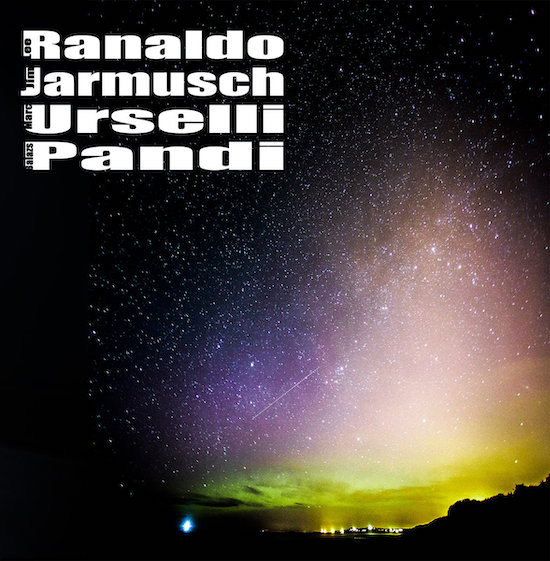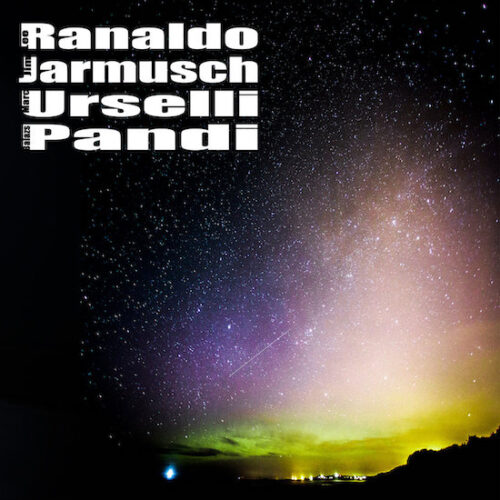The music of Lee Ranaldo, Jim Jarmusch, Marc Urselli, and Balázs Pándi is a stroll through a city, any city, in the dead of night. Here, under the hazy shine of orange lights, familiar buildings and streets turn into strange monuments and viaducts. The air feels different too, sharper and more dangerous than in the daytime. Heavy machinery clunks and grinds somewhere in the distance, leaving canorous echoes behind. Desolate outskirts that make one feel alone, but not quite lonely, channel and disperse into areas of never ending buzz. An ambulance or threatening police car passes by, sirens blaring. Chimes on the porch of an old, abandoned house rustle softly. Time flies by. It’s daybreak.
The self-titled collaboration of the four distinguished artists feels rather than soundtracks this intimate nocturnal adventure. Recorded in one sitting without any edits or overdubs at Marc Urselli’s studio in New York, the collective free improvisation is built on top of elongated motifs and sparse notes. Like a metropolis falling into reluctant hibernation, the opening ‘Gulltoppr’ rushes in, led by Pándi’s twitchy drumming and Urselli’s humming bass, only to settle and recombine itself into a coherent, expansive scenery. While one of the guitars plinks and plonks in onomatopoeic fashion, the other forms oscillating textures and saturates them into dissonance. The whole soundscape is abstract and colossal, stretched onto an alien timescale.
Especially during this first cut, there are glimpses of rawness in the playing of the group, moments when they seem unsure of which direction to take. But it’s exactly this unpredictability that makes the quartet’s evocative sounds thoroughly captivating. The fact that Ranaldo, Jarmusch, Urselli, and Pándi had never played together before pushes them to discover rather than revisit, unconstricted by learned behaviours.
While it would be convenient to devise parallels between Jarmusch’s work as a filmmaker and as a musician, in reality there aren’t many. Instead, his contributions on guitar, effects, and synth are only vaguely reminiscent of his droning duos with Jozef van Wissem. Apart from a few of Ranaldo’s fugitive guitar licks that might’ve come off a Sonic Youth album and a few segments during which Pándi drums and brushes with too much fervour, as if playing in one of his noisier projects, the music rules over the musicians and their previous experiences.
As the album unfolds, the notes become lighter and the interactions gentler. On the five-track CD version, it all culminates with the stark ‘Haar’ on which a flow of feedback, anchored and punctuated by prickly percussion, washes over fuzzy voices that barely escape a broken radio. This nostalgic moment and its cinematic, grandiose scope feel earned and lived in. A peaceful, almost cathartic climax to an excellent record.



